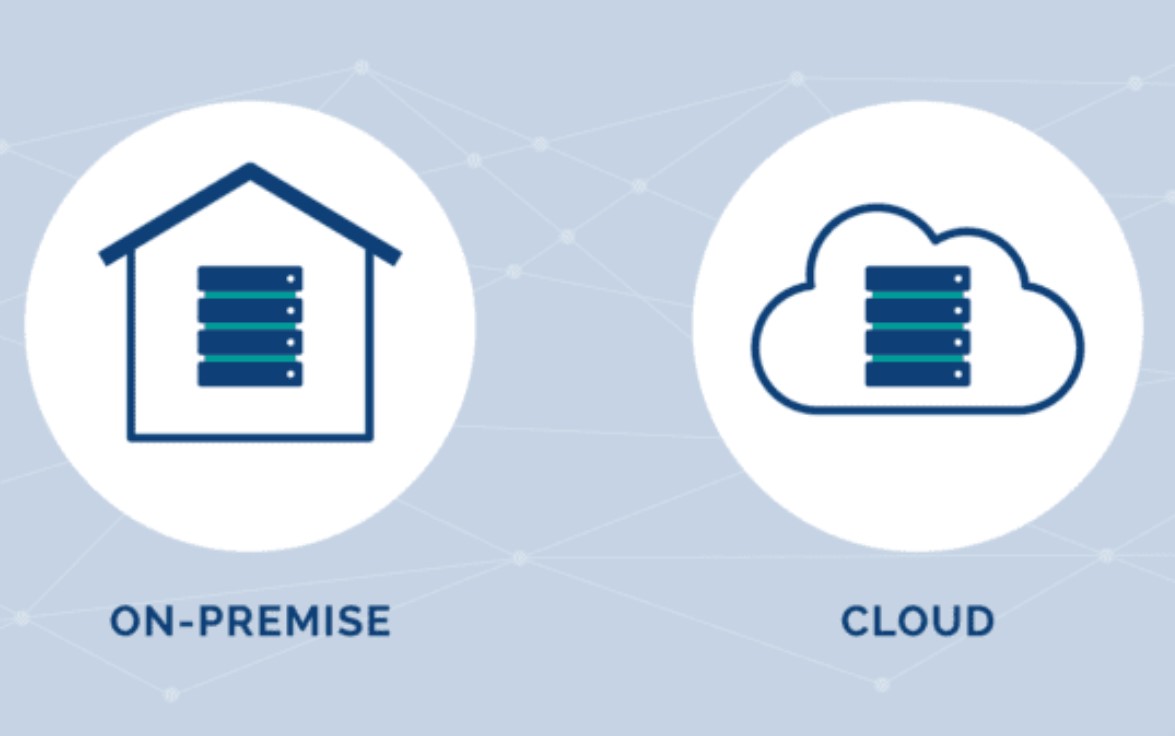
Choosing the right VPS (Virtual Private Server) plan is crucial for the success of your business’s online presence. Whether you’re running a small website, an e-commerce platform, or a resource-intensive application, selecting the appropriate VPS plan ensures optimal performance, security, and scalability. This guide will help you understand the key factors to consider, the benefits of VPS hosting, and how to choose the best VPS plan for your business needs.
Key Factors to Consider When Choosing a VPS Plan

Selecting the right VPS (Virtual Private Server) plan for your business can be a daunting task, especially with the plethora of options available in the market. The decision involves evaluating various factors to ensure that the chosen plan aligns with your business needs, budget, and growth potential. Here’s an in-depth look at the key factors you should consider when choosing a VPS plan.
1. Performance Requirements
Performance is a critical aspect when selecting a VPS plan. You need to ensure that the VPS can handle your website’s traffic, application requirements, and provide a smooth user experience.
CPU and RAM:
- CPU Cores: The number of CPU cores determines the server’s ability to process tasks. More cores can handle more simultaneous requests, which is crucial for high-traffic websites and resource-intensive applications. Assess your current and projected traffic to determine the right number of CPU cores.
- RAM: RAM affects the server’s ability to handle multiple tasks at once. More RAM means better performance for websites with high traffic, large databases, or those that run complex applications. Evaluate the RAM requirements based on your application’s needs to ensure smooth performance.
Storage:
- SSD vs. HDD: SSD (Solid State Drive) storage is faster and more reliable than traditional HDD (Hard Disk Drive) storage. SSDs improve read/write speeds, leading to faster data retrieval and website loading times. Ensure the VPS plan offers SSD storage for optimal performance.
- Storage Capacity: Consider the amount of storage space required for your website files, databases, and other data. Ensure that the plan provides sufficient storage and the flexibility to upgrade as your data needs grow.
2. Scalability
Scalability is the ability to upgrade or downgrade resources as your business needs change. A scalable VPS plan ensures that you can handle growth without experiencing downtime or performance issues.
Resource Flexibility:
- Vertical Scaling: Vertical scaling involves increasing the resources (CPU, RAM, storage) of your existing VPS. Choose a provider that allows easy vertical scaling to accommodate traffic spikes or growing business needs.
- Horizontal Scaling: Horizontal scaling involves adding more VPS instances to distribute the load. This is ideal for applications that require load balancing and redundancy. Ensure your provider supports horizontal scaling if your application architecture demands it.
3. Security Features
Security is paramount, especially if you handle sensitive business data or customer information. A secure VPS plan protects your data from threats and ensures compliance with industry standards.
Data Protection:
- Firewalls: A firewall acts as a barrier between your server and potential threats. Ensure the VPS plan includes firewall protection to monitor and control incoming and outgoing traffic based on security rules.
- DDoS Protection: Distributed Denial of Service (DDoS) attacks can overwhelm your server with traffic, causing downtime. Look for VPS plans that offer DDoS protection to mitigate such attacks and ensure uninterrupted service.
- Regular Backups: Regular backups are essential for data recovery in case of a security breach, hardware failure, or accidental data loss. Choose a VPS plan that includes automated and frequent backups to secure your data.
4. Control and Customization
Control and customization options allow you to tailor the server environment to your specific needs, providing greater flexibility and optimizing performance.
Root Access:
- Full Control: Root access gives you administrative privileges to install custom software, configure server settings, and manage security protocols. This level of control is crucial for developers and businesses with specific server requirements.
- Customization: With root access, you can customize the server environment to optimize performance for your applications. This includes configuring server resources, managing user access, and implementing custom security measures.
Control Panel:
- User-Friendly Interface: A control panel simplifies server management, making it easier to perform administrative tasks such as managing domains, email accounts, databases, and more. Popular control panels include cPanel, Plesk, and Webmin.
- Ease of Use: Choose a VPS plan that offers a control panel if you prefer a graphical interface for managing your server. This is particularly useful for users who are not comfortable with command-line operations.
5. Technical Support
Reliable technical support is essential, especially if you encounter server issues or need assistance with configurations. The quality of support can significantly impact your overall experience with the VPS provider.
24/7 Support:
- Availability: Ensure the VPS provider offers 24/7 technical support through multiple channels, such as live chat, phone, and email. This ensures you can get help whenever you need it, minimizing downtime and resolving issues quickly.
- Expertise: The support team should be knowledgeable and capable of handling complex technical issues. Look for providers with a strong reputation for excellent customer service and technical support.
Benefits of VPS Hosting for Businesses

VPS (Virtual Private Server) hosting offers a powerful and flexible solution for businesses looking to optimize their online presence. Whether you are running an e-commerce site, a growing blog, or a resource-intensive application, VPS hosting provides numerous advantages that can help your business thrive. Here, we delve into the various benefits of VPS hosting for businesses, explaining how it enhances performance, security, scalability, control, and customization.
Performance and Reliability
One of the most significant benefits of VPS hosting is the boost in performance and reliability compared to shared hosting.
Dedicated Resources:
- Consistent Performance: Unlike shared hosting, where resources are shared among multiple users, VPS hosting allocates dedicated CPU, RAM, and storage resources to your server. This ensures that your website or application performs consistently, even during peak traffic periods.
- Enhanced Load Handling: With dedicated resources, VPS hosting can efficiently handle high traffic volumes and complex applications. This is particularly beneficial for e-commerce sites, content-heavy websites, and other resource-intensive applications.
High Uptime:
- Minimal Downtime: VPS hosting typically offers higher uptime compared to shared hosting. The isolated environment and dedicated resources mean that your site is less likely to experience downtime due to issues affecting other users on the same server.
- Reliable Performance: The guaranteed availability of resources ensures that your site remains accessible and performs reliably, providing a seamless user experience.
Enhanced Security
Security is a top concern for businesses, especially those handling sensitive data or customer information. VPS hosting offers enhanced security features that help protect your data and ensure compliance with industry standards.
Isolation:
- Segregated Environments: Each VPS operates in its own isolated environment, which reduces the risk of security breaches and protects your data from other users on the same physical server. This isolation also prevents any potential issues on neighboring VPS instances from affecting your server.
Custom Security Measures:
- Firewalls and Intrusion Detection: VPS hosting allows you to implement custom security measures, such as firewalls and intrusion detection systems, to monitor and control incoming and outgoing traffic based on security rules.
- DDoS Protection: Many VPS hosting plans include DDoS protection to mitigate distributed denial of service attacks that can overwhelm your server with traffic and cause downtime.
- Regular Backups: Regular backups are essential for data recovery in case of a security breach, hardware failure, or accidental data loss. Choose a VPS plan that includes automated and frequent backups to secure your data.
Scalability
As your business grows, your hosting needs will likely change. Scalability is a critical factor in ensuring that your server can handle increased traffic and workload without experiencing performance issues.
Resource Flexibility:
- Vertical Scaling: Vertical scaling involves increasing the resources (CPU, RAM, storage) of your existing VPS. Choose a provider that allows easy vertical scaling to accommodate traffic spikes or growing business needs.
- Horizontal Scaling: Horizontal scaling involves adding more VPS instances to distribute the load. This is ideal for applications that require load balancing and redundancy. Ensure your provider supports horizontal scaling if your application architecture demands it.
Flexible Plans:
- Adjustable Resources: VPS hosting providers offer various plans that allow you to adjust your resources as needed. This flexibility ensures that you only pay for what you need and can upgrade or downgrade your plan as your requirements change.
Control and Customization
Control and customization options allow you to tailor the server environment to your specific needs, providing greater flexibility and optimizing performance.
Root Access:
- Full Control: Root access gives you administrative privileges to install custom software, configure server settings, and manage security protocols. This level of control is crucial for developers and businesses with specific server requirements.
- Customization: With root access, you can customize the server environment to optimize performance for your applications. This includes configuring server resources, managing user access, and implementing custom security measures.
Control Panel:
- User-Friendly Interface: A control panel simplifies server management, making it easier to perform administrative tasks such as managing domains, email accounts, databases, and more. Popular control panels include cPanel, Plesk, and Webmin.
- Ease of Use: Choose a VPS plan that offers a control panel if you prefer a graphical interface for managing your server. This is particularly useful for users who are not comfortable with command-line operations.
Cost-Effectiveness
VPS hosting provides a cost-effective solution for businesses that require more resources and control than shared hosting can offer, but without the high cost of a dedicated server.
Affordable Plans:
- Competitive Pricing: VPS hosting plans are generally more affordable than dedicated hosting, offering a good balance between cost and performance. You can choose a plan that fits your budget while still providing the necessary resources and features.
- Pay for What You Use: With VPS hosting, you only pay for the resources you need. This allows you to manage your hosting costs more effectively and scale up or down as your requirements change.
Resource Efficiency:
- Optimized Performance: The dedicated resources of a VPS ensure that your website or application performs optimally, providing a better user experience and potentially increasing conversions and revenue.
- Reduced Downtime: The reliability and high uptime of VPS hosting mean fewer disruptions to your business operations, leading to increased productivity and customer satisfaction.
Top VPS Hosting Providers: Detailed Comparison

To help you choose the best VPS hosting provider, here is a comparison of top providers based on use cases, pros, cons, price, and features:
| Provider | Use Case | Pros | Cons | Price (Starting) | Features |
|---|---|---|---|---|---|
| DigitalOcean | Ideal for developers and small businesses | Easy to use, scalable, excellent support | Limited data centers | $5/month | SSD storage, 99.99% uptime, snapshots |
| Vultr | Suitable for startups and enterprises | High performance, flexible billing | Advanced setup required | $2.50/month | SSD storage, multiple OS choices, high frequency CPUs |
| Linode | Great for tech-savvy users | High-speed network, reliable uptime | Steeper learning curve | $5/month | SSD storage, DDoS protection, multiple data centers |
| SiteGround | Best for growing websites | Excellent customer support, managed VPS | Higher cost | $80/month | Managed services, daily backups, free CDN |
| Bluehost | Perfect for beginners | User-friendly, 24/7 support | Higher renewal rates | $19.99/month | Free domain, cPanel, 1-click WordPress install |
In-Depth Look at Top VPS Providers
DigitalOcean
- Ease of Use: DigitalOcean offers an intuitive control panel, making it easy to manage your VPS.
- Scalability: Scale your resources with a few clicks to handle increased traffic.
- Support: Access a wealth of tutorials and a supportive community.
Vultr
- Performance: High-frequency CPUs provide excellent performance for resource-intensive applications.
- Flexibility: Choose from various operating systems and configurations.
- Cost-Effective: Competitive pricing makes it a great option for startups and small businesses.
Linode
- Network Speed: Linode’s high-speed network ensures fast load times.
- Security: Advanced security features like DDoS protection.
- Customization: Extensive customization options for your server environment.
SiteGround
- Support: Renowned for excellent customer support and managed services.
- Reliability: High uptime and daily backups for added security.
- User-Friendly: Great for growing websites needing managed VPS solutions.
Bluehost
- User-Friendly: Perfect for beginners with easy setup and 24/7 support.
- Free Domain: Includes a free domain and cPanel for easy management.
- WordPress Optimized: Ideal for WordPress websites with 1-click installs.
Detailed Use Cases and Problems Solved
E-commerce Sites
Use Case: E-commerce websites need robust hosting to handle high traffic and secure transactions.
Problems Solved:
- Performance: VPS hosting ensures fast load times and high uptime, crucial for customer satisfaction.
- Security: Enhanced security features protect sensitive customer data and transactions.
- Scalability: Easily upgrade resources to handle traffic spikes during sales events.
Growing Blogs
Use Case: Blogs that are expanding in content and readership.
Problems Solved:
- Speed: Dedicated resources ensure fast load times, improving user experience and SEO.
- Capacity: Manage growing volumes of content without hitting resource limits.
- Customization: Install plugins and custom software to enhance functionality.
Development Projects
Use Case: Development and testing environments for web applications.
Problems Solved:
- Isolation: Separate environments prevent conflicts between projects.
- Customization: Tailor server settings for specific development needs.
- Performance: Reliable performance metrics for testing applications.
FAQs
- What is VPS hosting?
- VPS hosting is a type of web hosting where a physical server is divided into multiple virtual servers, each with dedicated resources and isolated environments.
- Why should I choose VPS hosting?
- VPS hosting offers better performance, enhanced security, scalability, and greater control over your server environment.
- How do I choose the right VPS hosting provider?
- Consider factors like performance, security, scalability, support, and pricing. Review top providers like DigitalOcean, Vultr, Linode, SiteGround, and Bluehost.
- Is VPS hosting more expensive than shared hosting?
- Yes, VPS hosting is typically more expensive than shared hosting due to the dedicated resources and enhanced features it offers.
- Can I migrate my website to VPS hosting by myself?
- Yes, you can migrate your website yourself by following a step-by-step guide. However, some providers offer managed migration services for an additional fee.
By following this comprehensive guide, you’ll gain a thorough understanding of how to choose the right VPS plan for your business. Ready to get started? Click the links to explore your options and choose the best VPS hosting provider for your needs!




